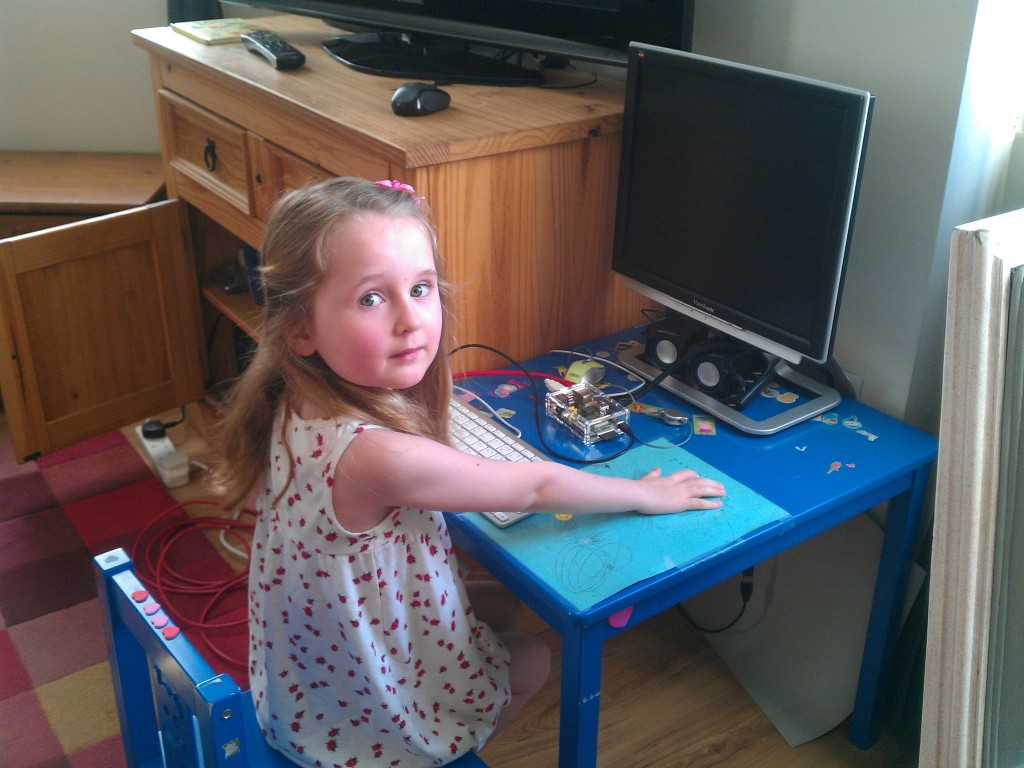Tonight I tested a Raspberry Pi model B running Raspbian as an OpenVPN-capable router. I used an Apple USB FastEthernet adaptor as the external interface. Results are disappointing. Pushing traffic through the VPN produced 90% CPU usage at about 8 Mbit with the CPU running at 700 MHz (no CPU overclocking). That’s far below what my tests with “openssl speed” produced.
Tags: openssl, openvpn, raspberrypi

We’re interviewing for new Linux administration and systems development positions at Talia. Do you have a few years’ experience under your belt and want a challenge? Or have you used Linux at home and want to make the switch to being paid for it? Apply here:
You’ll be working directly with me as part of a small team. You’ll have plenty of responsibility and input into what you work on, and we’re a pretty fun group.
Update 2013-08-07: We’ve filled both roles. However, you’re always welcome to send me a CV.
Update 2018-02-08: This post was written for Cacti 0.8.x. Some details have changed since Cacti 1.0.
You should really, really get your Cacti RRA settings right before you begin using it. Cacti defaults to polling every 5 minutes, but a lot of enterprise users change this to 1 minute in order to provide higher resolution for troubleshooting problems. Unfortunately, there is a lot of incomplete information on how to do this.
Tags: cacti
I previously wrote about how Cacti uses rrdtool to store and graph data. Cacti uses templates to define how it interacts with rrdtool as well as how it manages devices. Unfortunately, how objects inherit from these templates varies.
I have imported Calibre 0.9.18+dfsg1-1bzr and its dependencies into my Apt repository for Ubuntu quantal (and Linux Mint 14). Although this isn’t the latest software release, it is the latest release published in Ubuntu raring. This makes it very easy to backport with pbuilder.
Cacti is a great tool. I use it for collecting and graphing all kinds of data about my servers and networks. But after using it for so many years, I’ve learned its weaknesses. It is quite easy to make a mistake setting up Cacti that you later come to regret – and cannot fix. Before using Cacti to graph real data, you need to understand how it works.
This is the first in a series of related blog posts about Cacti.
I recently built a storage server (SAN/NAS/whatever) with Nas4Free on a Supermicro 6037R-E1R16N. If you’ve ever built a SAN, you’ve seen one of these. Lots of disks in a ZFS array, with a filesystem exported via NFS or a volume exported via iSCSI. After almost a month of operation, I discovered that Nas4Free defaults to having no swap space. And this means your storage server will not be stable.
This weekend Pascale and I replaced the children’s Ubuntu PC with a Raspberry Pi. Pascale is my oldest daughter, now 4.5 years old.
Pascale loves the Raspberry Pi logo, and calls the new computer “Raspberry Pi … Pi Pi Pi!” I installed Raspbian on the SD card the night before. The next morning, we sat down together with all the parts and cables. We watched the video and assembled the enclosure together. Then Pascale figured out all where all the cables go and how they snap in. We’re still waiting for the HDMI-to-DVI cable to connect it to the screen on her table, so we tested it on the TV.
Tags: pascale, raspberrypi
I run SSHd on my Android phone. This means I can copy files via wireless SFTP, and back it up with BackupPC. It beats using USB or Dropbox. With Android 4.1 and up (Jelly Bean), the default umask for files has changed from “000” (users/programs can write to nearly any file) to “077” (users/programs can only write to files they own). This is better, but meanwhile many Android programs expect the old behaviour. QuickSSHd (a 99p Android dropbear SSH server) is one of them.








Recent Comments